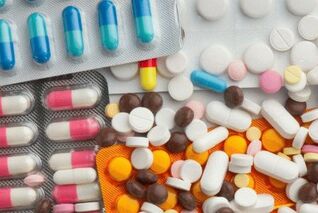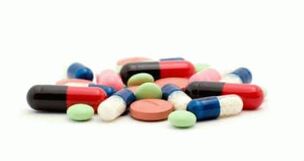
Start on time to treat the inflammatory process in the prostate - this is the main rule that will help men get rid of the disease quickly and prevent complications and relapses. There are so many different drugs being produced now that it is very easy to mix them. All prostatitis pills are placed as the most effective means of prevention or getting rid of the disease, but when examined more closely, more than half are not very effective, eliminating the symptoms, but not getting rid of the cause. Consider cheap and effective options.
Types of drug assistants
Antibiotics, painkillers, a tool from the Chinese or local pharmaceutical industry, and so on? Which helps the best? Men should first consult a doctor to choose the right medication. The specialist will analyze the body's sensitivity to a particular agent, determine the type and stage of the disease, as well as study the individual characteristics of the organism. Based on all this information, the doctor will prescribe a course of treatment and tell you which pill a particular patient should take for prostatitis.
The medical course for men to get rid of acute and chronic prostatitis includes the use of the following drugs (all pills are for treatment, not prevention! ):
- Antibiotics.
- Antispasmodics.
- Anti-inflammatory drugs.
- Alpha blockers.
- Means that improve blood circulation.
Let's take a closer look at all the pills for prostatitis: their purpose, features, etc.

Antibiotics
Antibiotics are needed for acute and chronic forms. The main tasks assigned to antibiotics are to destroy the pathogenic flora, reduce intoxication and inflammation, and consequently accelerate recovery. It is impossible to treat prostatitis in men without antibiotics, because it is the most effective tool.
All antibiotic tablets are divided into the following groups:
- Fluoroquinolones. Pills needed for the treatment of chronic prostatitis.
- Aminopenicillins. Prescribing aminopenicillins is common in mild uncomplicated stages (with an acute process and rarely exacerbation of chronic prostatitis in men).
- Cephalosporins. Tablets are widely used (for treatment in any form), but the drug has a short antibacterial effect.
- Macrolides. Antibiotics that have the least effect on prostatitis in men, but also have minimal toxic effects.
- Tetracyclines. Well tolerated. They have the highest natural activity among all antibiotics against atypical microorganisms (chlamydia and mycoplasma).
It is impossible to say which of these funds is better than others, because men have an individual sensitivity to drugs.
Against inflammation
To relieve inflammation, doctors recommend taking non-steroidal anti-inflammatory drugs that relieve unpleasant pathological symptoms and reduce prostate edema in men, thereby reducing pain. Painkillers are needed during therapy because they allow you to eliminate the unpleasant symptoms and move on to the next stage. If the patient turns out to be insensitive to this group of drugs, he is prescribed strong hormonal drugs.
Alpha blockers
These pills are prescribed as an adjuvant for the treatment of prostatitis in men (ie, they do not aim to get rid of the problem, relieve symptoms and help the effect of other powerful drugs). It is prescribed for men with moderate severity of the disease, who have difficulty urinating.
The list of alpha-blockers is not extensive. Each drug is directed against spasms in the neck of the prostate and bladder, reduces pressure in the urethra and increases urine flow.
Experts' comments are unequivocal: treatment with alpha-blockers is generally well tolerated. Minor side effects may appear with individual intolerance to the components that make up the tablets.
Antispasmodics
In acute prostatitis, men are given pills to relieve spasms. Their effectiveness is based on the fact that they relax the smooth muscles of the blood vessels, increase blood microcirculation and thus reduce inflammation and play a analgesic role.
As can be seen from the patient's views, antispasmodics are very effective against spasms and allow you to quickly eliminate the unpleasant symptoms, severe pain in the groin area.
To improve blood circulation
The common cause of pathology is stagnant formations. They do not allow the organs to recover and antibiotics to interfere with their normal functioning. Therefore, it is not possible to treat prostatitis if you do not take drugs that improve blood circulation in parallel with antibiotics.
What is the preferred use for acute and chronic prostatitis? Antibiotics, antispasmodics or painkillers? The list of drugs is extensive, there are a number of measures that show how to treat prostatitis with pills - some are needed for prevention, some are aimed at destroying viruses, others should be taken to increase blood flow, relieve spasms and eliminate inflammation. At the same time, each group has so many drugs that you can not do without the help of a specialist. In addition, each type of pill has its own characteristics and contraindications.
See your doctors and follow their recommendations - they will prescribe the best and cheapest medicine for you and take care of your recovery. And don't forget to prevent the disease - it's easier to prevent than to cure!
































